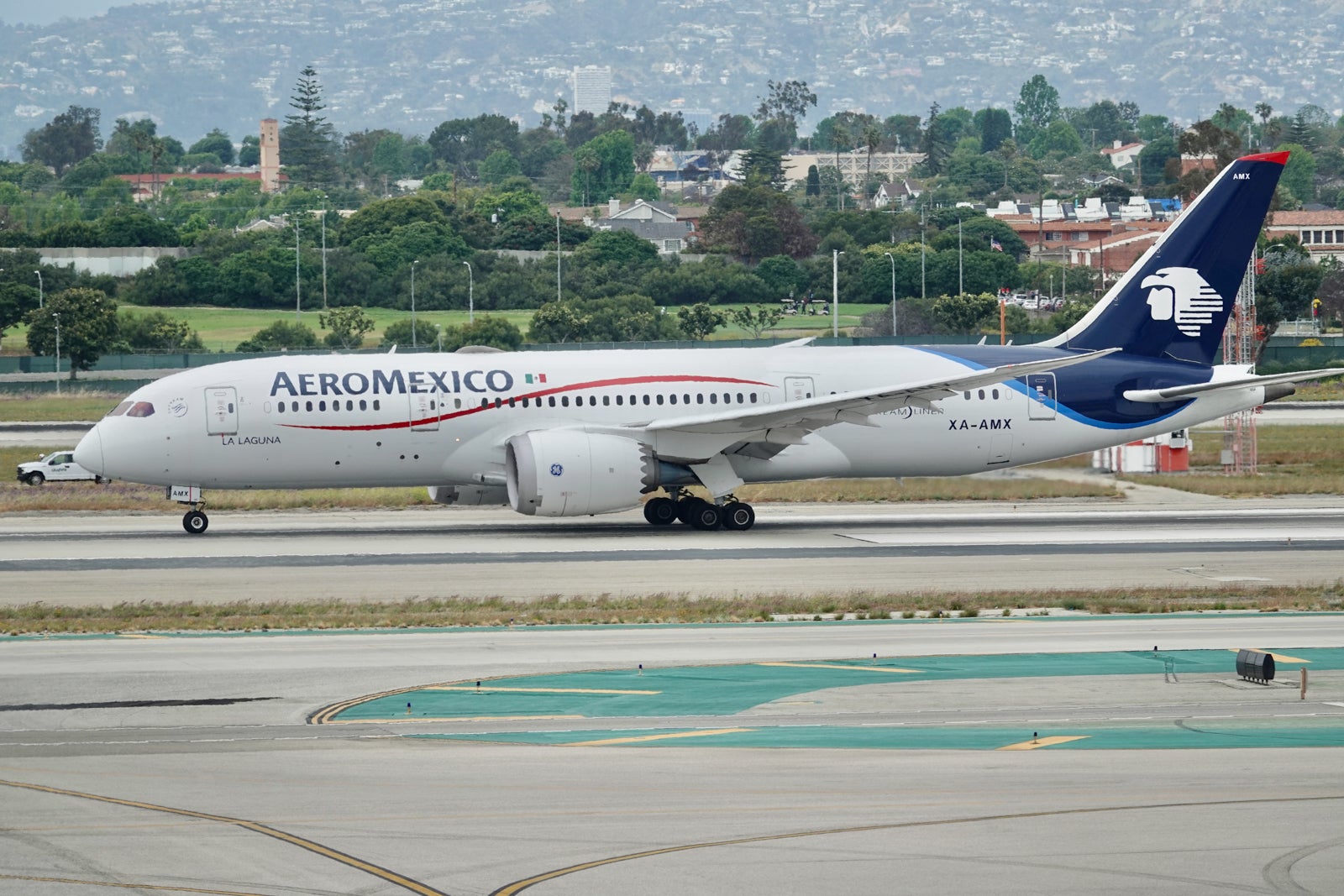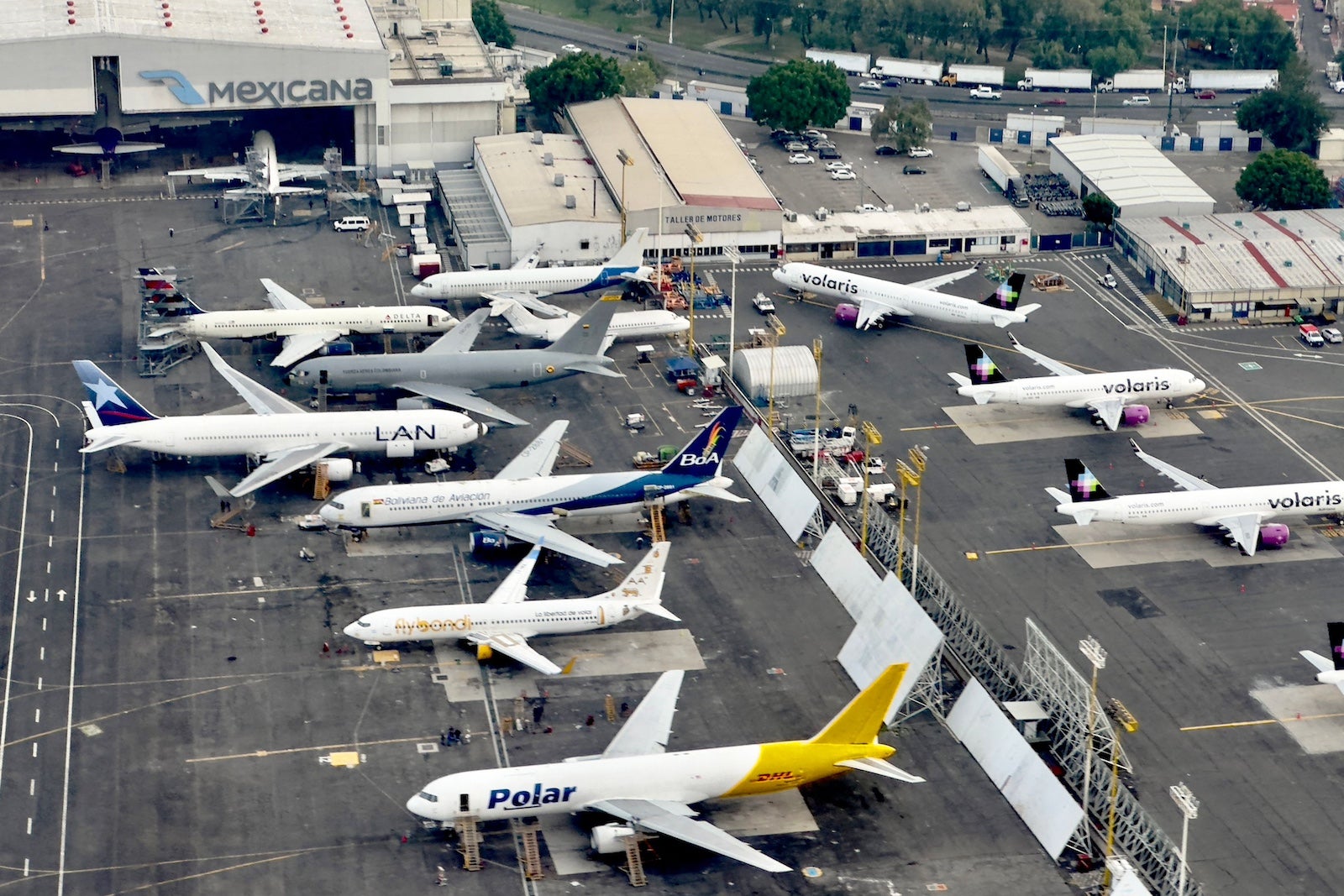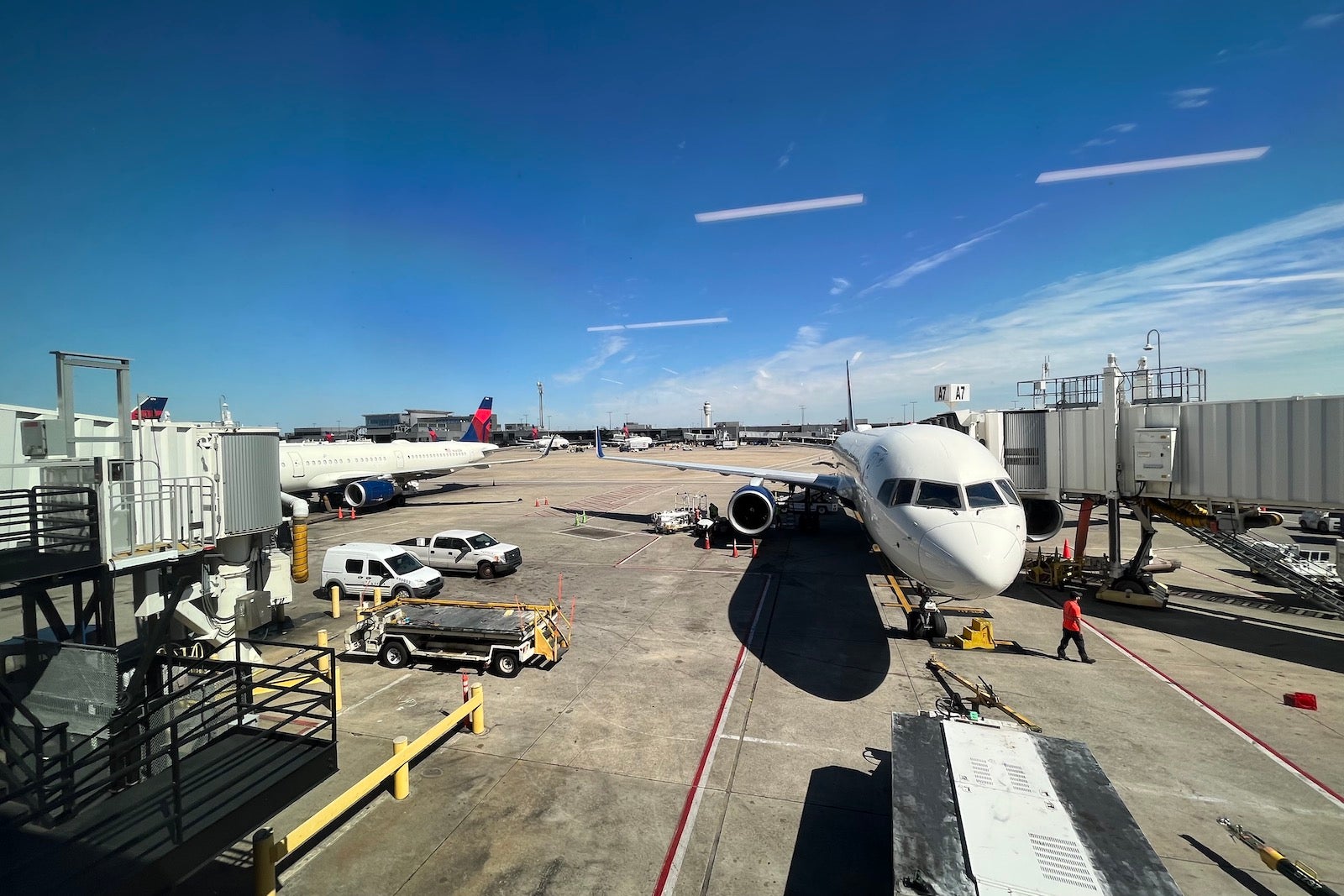In a move Delta Air Lines described as an “unprecedented, regulatory overreach,” the U.S. Department of Transportation late last week ordered the Atlanta-based carrier to unwind its joint venture with Mexican carrier Aeromexico.
In an order Friday, the DOT refused to renew the two airlines’ antitrust protections, which have been in place since 2016, citing steps by the Mexican government at Mexico City International Airport (MEX) that it sees as anti-competitive.
This step could mean changes in air travel aboard the two carriers between the U.S. and Mexico.
Want more airline-specific news? Sign up for TPG’s free biweekly Aviation newsletter.
Under the tentative order, the two airlines would have to unwind their joint venture by late October.
More than an alliance partnership
Though Delta and Aeromexico are both members of the SkyTeam alliance, their partnership runs much deeper.
For more than a decade now, Delta has held an equity stake in the Mexico City-based carrier and has increased it over time.
As part of the arrangement, the two airlines codeshare on routes and coordinate on scheduling.
Just last fall, for instance, Aeromexico announced 17 new routes to begin in 2024. Fourteen of those routes involved Delta hub cities, particularly Hartsfield-Jackson Atlanta International Airport (ATL) and Detroit Metropolitan Wayne County Airport (DTW).

Daily Newsletter
Reward your inbox with the TPG Daily newsletter
Join over 700,000 readers for breaking news, in-depth guides and exclusive deals from TPG’s experts
On Delta’s October 2023 earnings call, president Glen Hauenstein noted the company’s close cooperation with Aeromexico.
“You can see us coordinating with them,” Hauenstein told analysts. “We’ve been working closely with them continue to work on where we see strength and being able to serve those markets better, including the auto sector in Detroit and including Atlanta as a primary gateway to Mexico primary and secondary airports.”
Hauenstein called Mexico a “great source of strength” for the Delta over the previous year.
Antitrust immunity denied
The U.S. government has taken issue with how the Mexican government has regulated Mexico City’s primary airport — and Aeromexico’s home base.
When Delta and Aeromexico deepened their partnership in the mid to late 2010s, a big contingency was the divestiture of “slots.” Slots are typically used at congested airports where flight demand exceeds capacity. By requiring a divestiture, regulators sought to prevent Delta and Aeromexico from simply massing their slots at the airport — where the pair already have an outsized presence — and release some to other airlines in the hopes of increasing competition.
In the U.S., slots are used at airports in the New York region and at Ronald Reagan Washington National Airport (DCA), where gate space is at a premium.
The DOT argues the Mexican government has been “opaque and anti-competitive” in governing slots — often to the benefit of Aeromexico and the detriment of new-entrant airlines that could enhance competition.
More recently, the DOT said the Mexican government cut air cargo operations at Mexico City and that the airport has seen falling flight capacity numbers over the last three peak air travel seasons — all in the name of renovations at the airport needed to relieve capacity problems.
“However,” the order explained, “the Mexican Government has more recently conceded that no such construction plans exist.”
Joint venture must unwind
As a result, the DOT refused to renew Delta and Aeromexico’s antitrust protections and ordered the airlines to unwind their joint venture by Oct. 26.
The airlines will likely have a chance to contest the DOT’s ruling over the coming months.
In the meantime, though, the U.S. government asked the airlines to submit a wind-down schedule to ensure consumers are not harmed as their tie-up comes to an end.
Delta responds
In a statement Monday evening, Delta said it’s “deeply disappointed” by the DOT’s tentative decision.
Delta pledged to “take all necessary steps” to protect the millions of consumers whom it says have benefitted from the arrangement.
What does this mean for travelers?
Delta and Aeromexico likely wouldn’t have to do away with all aspects of their partnership, even if the DOT’s recent ruling is ultimately finalized.
As long as the two carriers remain SkyTeam partners, customers would likely be able to continue enjoying certain reciprocal loyalty program perks afforded to customers throughout the alliance.
For instance, if you’re a Delta Medallion, you would likely still be able to enjoy your Sky Priority benefits when flying aboard Aeromexico. The same goes for Aeromexico Rewards members flying aboard Delta.
Also, SkyMiles members would likely still be able to earn miles on Aeromexico flights (and vice versa).
However, the two carriers might face new restrictions on codesharing and would no longer have antitrust immunity to coordinate schedules and fares the way that they do today.
In its Monday statement, Delta said the joint venture has been directly responsible for the launch of 15 new routes between the U.S. and Mexico. It said the joint venture has been “critical to connecting communities and businesses in both countries.”
Time will tell what might happen to some of these codeshare-heavy routes.
Bottom line
Barring any change of heart by the DOT, Delta and Aeromexico will have to unwind their joint venture by Oct. 26.
This will almost certainly bring changes on routes between the U.S. and Mexico aboard the two carriers. However, customers should still be able to earn miles and enjoy reciprocal loyalty benefits when flying aboard the two carriers since both remain SkyTeam alliance partners.
Related reading:


